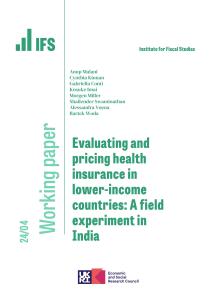English Longitudinal Study of Aging (ELSA). In: Nancy A Pachana (ed.). Encyclopedia of Geropsychology. Springer, Singapore.
Published on 1 May 2017
Abstract:
Definition
The English Longitudinal Study of Ageing (ELSA) [1] is a multidisciplinary panel study that collects a comprehensive array of measures on a representative sample of men and woman aged 50 and over who are living in England. Repeated measures covering health, economics, psychology, lifestyle and social connections are collected from the same individuals over time, allowing researchers to study the dynamics of the ageing process.
The ELSA sample and study design
ELSA is sampled from the Health Survey for England (HSE), a large annual cross-sectional survey on the health of the population of England [2]. Sample members recruited at wave 1 (2002/2003) were individuals who had previously taken part in one of three years of the HSE (1998, 1999 and 2001), and were aged 50 or over at the time of the wave 1 interview. Subsequent ELSA data collection waves have taken place biennially, in 2004/05 (Wave 2), 2006/07 (Wave 3), 2008/09 (Wave 4), 2010/11 (Wave 5), 2012/13 (Wave 6) and 2014/15 (Wave 7). The eighth and ninth waves of data collection are planned for 2016/17 and 2018/2019, respectively.
New study participants are recruited during some waves in order to compensate for the ageing sample population and to refresh the younger age groups. This serves to maintain representation of all ages 50 and over in ELSA. Refreshment sampling to date has recruited members aged 50-52 at wave 3 (HSE 2001-04); aged 50-74 at wave 4 (HSE 2006), aged 50-55 at wave 6 (HSE 2009 -11) and aged 50-51 at Wave 7 (HSE 2011-12), with plans to continue to recruit new sample members aged 50-51 at future waves.
The “core members” of the ELSA sample are individuals aged 50 and over, living in private residences, who were recruited through HSE at either the first Wave of ELSA or at any of the subsequent refreshment samples. The data also includes interviews with “young partners”, who are individuals under the age of 50 whose partners are core members and “new partners” in the correct age range who entered relationships with core members after those members were recruited to ELSA.
Mode of interview
Data are collected from respondents in their own home, every two years and by means of a computer assisted personal interview (CAPI) that is delivered by a trained interviewer. The CAPI includes questions on the respondents’ demographics, household membership, work and retirement activities, economic circumstances, health and behaviour. A self-completion questionnaire includes questions on wellbeing, social participation, quality of life and social networks, along with questions considered to be sensitive. The main interview takes approximately 85 minutes to complete for an individual interview and around two hours when two people within the same household are interviewed concurrently.
At waves 2, 4 and 6, core members who completed a main interview were offered a visit from a qualified nurse, where a blood sample was taken and a series of performance and biomedical tests were conducted. The nurse visits took place soon after the main interviews and were of similar duration to the main interviews.









